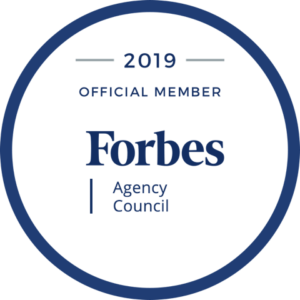by Beth Levine | Nov 17, 2009 | Just Mouthing Off
Okay, so we’ve all sat in rooms and endured speakers who ramble, never get to the point, are hard to follow, don’t seem sharp or prepared, give way too much background, or all of the above. Right? And why? Why are we so willing to be so polite? Why do we enable the complacency and mediocrity and lack of awareness of others who speak and present to us . . . I bet if we had a remote control, we’d switch to another speaker!
We’re polite about it because we empathize. There, but for the grace of God, go I; it could just as easily be me up there; I’m awful too, I hate it, I’m the worst; this poor guy, better him than me. Not true! Or, it certainly doesn’t have to be true! Because this bad-speaker/enabling-audience phenomenon is soooo unnecessary, I want to offer a nugget of advice about “communications packaging” that might help you . . . this will certainly heighten your awareness of where other speakers and presenters go wrong, but it will also give you a little bit of a guideline to improve your own communications.
So, here goes: Package your communications around messages versus information. Messages are statements that make a point, that do a job like persuading or motivating or educating. Messages are verbal takeaways from a talk, they are memorable. Information is the detail or data or examples that back up and support a message. Granted, some information may be so important that it has to take center stage. In that case, fine, then it is the message and it probably comes with some supporting info of its own. But 99.9% of the time, you will find that what you’re seeing with the rambler, the never-gets-to-the-point speaker, the unprepared-TMI-presenter is probably an information dump without any packaging around it!
Think food chain. Messages are higher on the communications food chain than information. The next time you’re preparing a talk, you should test yourself and ask, am I leading with just a bunch of info, or am I leading with a message and then backing it up with info? Trust me, you are salvageable, and you will be more effective, with just a few simple clicks of the keyboard. Which is a lot better than your audience wanting to get rid of you with a few simple clicks of the remote!
by Beth Levine | Nov 11, 2009 | quote
You got to be careful if you don’t know where you’re going, because you might not get there.
– Yogi Berra
by Beth Levine | Nov 7, 2009 | smartmouth talks!
Reflecting on yesterday’s Leadership Communications Seminar – SmartMouth’s first! – I am struck mostly by the good vibe. A diverse group of twelve leaders gathered in an unusually comfortable, sunlit conference room in downtown Salt Lake City to listen, learn, share, discuss, and work together! Time flew. Relationships were formed. Common challenges were noted. Accepted practices were questioned. New ideas and thought processes were floated. Absorption. Understanding. Renewed motivation. Really good group mojo.
Because of the strength and experience of the participants, I morphed into being more the facilitator of dynamic group discussions than the trainer/teacher/coach I so often am. These were professional leader/communicators, exploring the pitfalls and the opportunities they have when they open their mouths – in both formal and informal settings. I used a very hands-on approach, with lots of case studies – including the real-life cases raised by participants – and pushed them pretty hard to develop strong, meaningful messages. No pabulum allowed.
Over lunch, we side-tracked for a little to share personal stories and experiences. I passed around a plate of silk fortune cookies; inside each one was a folded-up slip of paper with a question or the start of an unfinished sentence. All about communicating, all different, all prompting the group into interesting conversation and, in most cases, another learning moment. Some surprising, some very funny, moments.
The opening and culminating exercises of the Seminar were the oh-so-simple-but-oh-so-dreaded “personal introductions,” which interestingly and, I might add, predictably not one of these twelve leaders had at-the-ready. The difference between their output at 9 am and their output at 4 pm was remarkable and very rewarding to observe!
Thanks to all participants! I was honored to be your leader yesterday!
by Beth Levine | Oct 29, 2009 | Just Mouthing Off
I love coaching engineers on communication and presentation skills – partly because they have the most outrageous anecdotes about their peers. Today I heard a real doozy!
Turns out, in the middle of his presentation at a major annual conference, a high-level, well-known engineer answered his cell phone! Yes, that’s right . . . he was on-stage, in front of a large audience, his cell phone rang in his pocket, he took it out, said hello, told the caller he was in the middle of a presentation and couldn’t talk, then he hung up, put the phone back in his pocket, and resumed the presentation.
Now if that doesn’t take the grand prize, I give up! Wow, I was speechless!
by Beth Levine | Oct 15, 2009 | Just Mouthing Off
For some reason, even the smartest, most seasoned professionals lose all sense of perspective and proportion – e.g. time, place, purpose – when they have to make a formal announcement. I have seen the mere suggestion that someone needs to make a statement, or hold a press conference, or speak at an event escalate into nothing short of the need to draft a new version of the Gettysburg Address.
For example, I recently had a client who was asked to make brief welcoming remarks before dinner to a visiting industry group. Knowing full well there would be other presentations during dinner that evening, this client and his handlers still came up with a full-blown speech that not only welcomed everyone, but addressed and empathized with the biggest challenges facing that particular industry. It was meant to be meaningful for the audience, but it was also long, philosophical, and dissertation-like. Great stuff for a keynote speech, but way overboard for “brief welcoming remarks.” I offered to help, and we cut his remarks back to be much shorter and somewhat more entertaining. He still empathized with the industry for its woes, so he was relevant, but he did it in story format, using some lighthearted humor, which gave it a less formal and more conversational feel. In the end, it was much better suited to a welcome!
Another example was a client in the early stages of a multi-year project to build a new, much-anticipated state-of-the-art facility. At the point in the design process when the client was due to announce the selection of the firm that would create the look and feel of the interior space, I caught wind that the executive in charge was planning to say this: “Today is the culmination of 10 years worth of dreaming and planning and hard work by many. We are so proud and thrilled . . . ” Huh? Really? To see if I could awaken this client to a sense of proportion, I gently asked, “um, so, like, what will you say at the ground-breaking when construction begins, or at the ribbon-cutting for the grand opening? Don’t you want to save the 10-year dream-come-true theme for one of those occasions?”
Here are three tips to help you keep it all in perspective and maintain a sense of proportion:
1. Think about the audience and the occasion. Why is the audience in the room and what do they care about, want, and/or expect?
2. Know your role for the occasion. Are you the only speaker or one of many speakers? What specifically were you asked to do?
3. Know your “job” for the occasion. Are you introducing, informing, inspiring, entertaining? What verb describes your primary communications task for the occasion?
You’ll be just fine if you keep the audience in mind, stick to your assigned role, and do your “job” – nothing more, nothing less!



